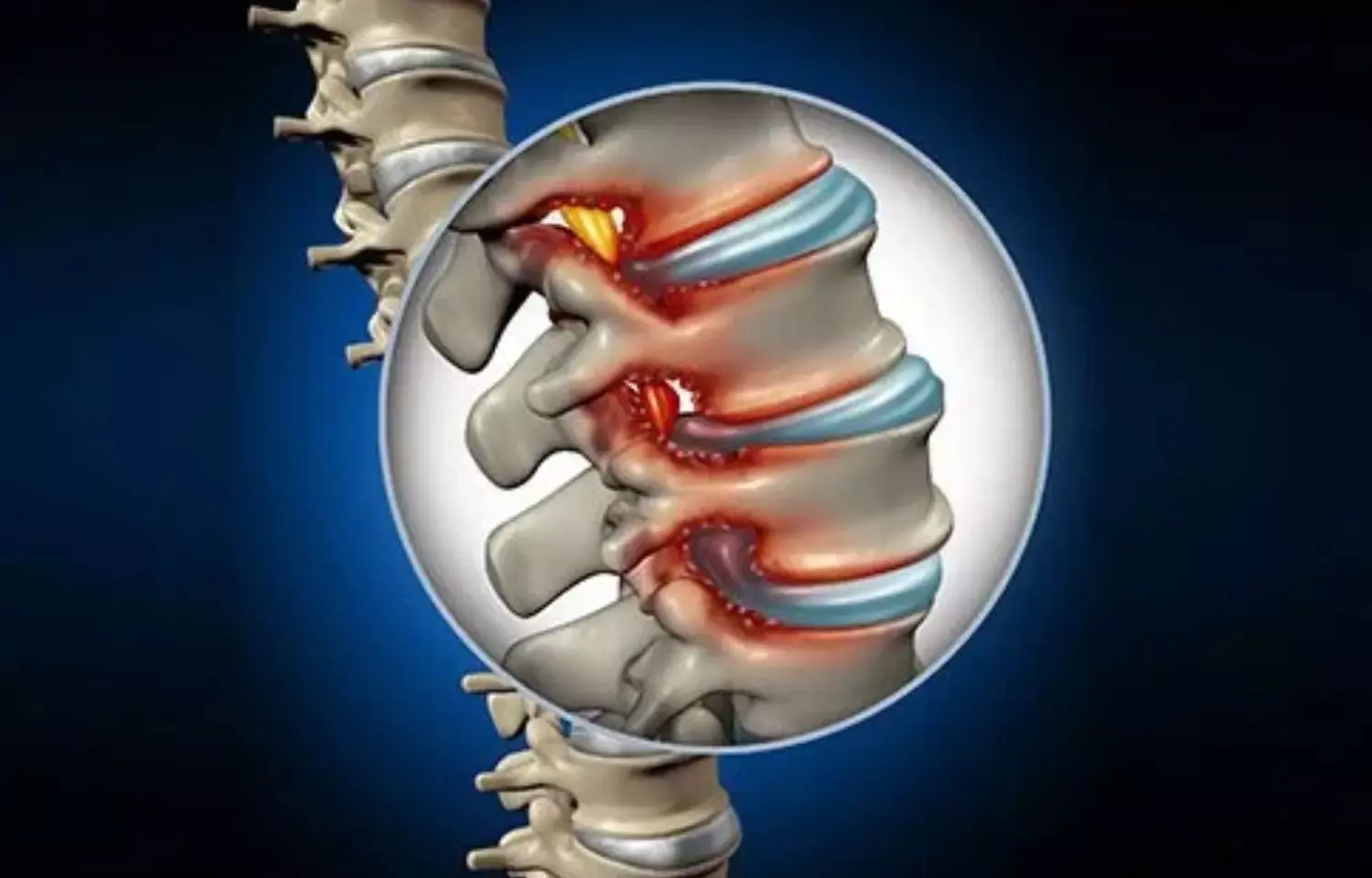- Home
- Medical news & Guidelines
- Anesthesiology
- Cardiology and CTVS
- Critical Care
- Dentistry
- Dermatology
- Diabetes and Endocrinology
- ENT
- Gastroenterology
- Medicine
- Nephrology
- Neurology
- Obstretics-Gynaecology
- Oncology
- Ophthalmology
- Orthopaedics
- Pediatrics-Neonatology
- Psychiatry
- Pulmonology
- Radiology
- Surgery
- Urology
- Laboratory Medicine
- Diet
- Nursing
- Paramedical
- Physiotherapy
- Health news
- Fact Check
- Bone Health Fact Check
- Brain Health Fact Check
- Cancer Related Fact Check
- Child Care Fact Check
- Dental and oral health fact check
- Diabetes and metabolic health fact check
- Diet and Nutrition Fact Check
- Eye and ENT Care Fact Check
- Fitness fact check
- Gut health fact check
- Heart health fact check
- Kidney health fact check
- Medical education fact check
- Men's health fact check
- Respiratory fact check
- Skin and hair care fact check
- Vaccine and Immunization fact check
- Women's health fact check
- AYUSH
- State News
- Andaman and Nicobar Islands
- Andhra Pradesh
- Arunachal Pradesh
- Assam
- Bihar
- Chandigarh
- Chattisgarh
- Dadra and Nagar Haveli
- Daman and Diu
- Delhi
- Goa
- Gujarat
- Haryana
- Himachal Pradesh
- Jammu & Kashmir
- Jharkhand
- Karnataka
- Kerala
- Ladakh
- Lakshadweep
- Madhya Pradesh
- Maharashtra
- Manipur
- Meghalaya
- Mizoram
- Nagaland
- Odisha
- Puducherry
- Punjab
- Rajasthan
- Sikkim
- Tamil Nadu
- Telangana
- Tripura
- Uttar Pradesh
- Uttrakhand
- West Bengal
- Medical Education
- Industry
Type of index operation not linked to need for revision surgery in degenerative lumbar spinal stenosis

Switzerland: A new cohort study found no significant association between type of index operation and need for revision surgery after 3 years among patients with degenerative lumbar spinal stenosis (DLSS).
The study was published in the JAMA Network Open.
Lumbar spinal stenosis is a spinal canal narrowing, compressing the nerves traveling through the lower back into the legs, most commonly affecting people aged 60 and older. It can be treated conservatively with pain-relieving agents or aggressively with decompressive surgery. There has been a remarkable increase in decompression and fusion surgery for degenerative lumbar spinal stenosis (DLSS). The increase in operation rates could lead to more patients needing revision surgery, resulting in intraoperative or postoperative complications, bone fusion failures, the persistence of pain, or additional progressive degeneration such as adjacent segments disease. Also, the need for revision surgery adds to the financial and resource burden. Only limited data derived from extensive prospective cohort studies exist on the incidence of revision surgery among patients who undergo operations for degenerative lumbar spinal stenosis (DLSS).
Ulrich NH, University of Zurich, Zurich, Switzerland, and his research team conducted a study to assess the cumulative incidence of revision surgery after 2 types of index operations decompression alone or decompression with fusion among patients with DLSS.
The research team analyzed data of 328 patients aged 50 years or older with DLSS from the Lumbar Stenosis Outcome Study. Of the total, 256 underwent decompression alone and 72 underwent fusion surgery. The primary outcome was the cumulative incidence of revision operations. Secondary outcomes included changes in the following patient-reported outcome measures: Spinal Stenosis Measure (SSM) symptom, physical function subscale scores, and the EuroQol Health-Related Quality of Life 5-Dimension 3-Level questionnaire (EQ-5D-3L) summary index score.
Key findings of the analysis:
• The cumulative incidence of revisions after 3 years of follow-up was 11.3% for the decompression alone group and 13.9% for the fusion group.
• There was no significant difference in the need for revision between the 2 groups over time (adjusted hazard ratio-1.40)
• The number of revisions was significantly associated with higher SSM symptom severity scores (β, 0.171) and lower EQ-5D-3L summary index scores (β, −0.061) but not with higher SSM physical function scores (β, 0.068).
• The type of index operation was not significantly associated with the corresponding outcomes.
The authors conclude that there is no significant association between the type of index operation for DLSS—decompression alone or fusion—and the need for revision surgery or the outcomes of pain, disability, and quality of life among patients after 3 years. The number of revision operations was associated with more pain and worse quality of life.
Reference:
Ulrich NH, Burgstaller JM, Valeri F, et al. Incidence of Revision Surgery After Decompression With vs Without Fusion Among Patients With Degenerative Lumbar Spinal Stenosis. JAMA Netw Open. 2022;5(7):e2223803. doi:10.1001/jamanetworkopen.2022.23803
BDS
Dr. Hiral patel (BDS) has completed BDS from Gujarat University, Baroda. She has worked in private dental steup for 8years and is currently a consulting general dentist in mumbai. She has recently completed her advanced PG diploma in clinical research and pharmacovigilance. She is passionate about writing and loves to read, analyses and write informative medical content for readers. She can be contacted at editorial@medicaldialogues.in.
Dr Kamal Kant Kohli-MBBS, DTCD- a chest specialist with more than 30 years of practice and a flair for writing clinical articles, Dr Kamal Kant Kohli joined Medical Dialogues as a Chief Editor of Medical News. Besides writing articles, as an editor, he proofreads and verifies all the medical content published on Medical Dialogues including those coming from journals, studies,medical conferences,guidelines etc. Email: drkohli@medicaldialogues.in. Contact no. 011-43720751


